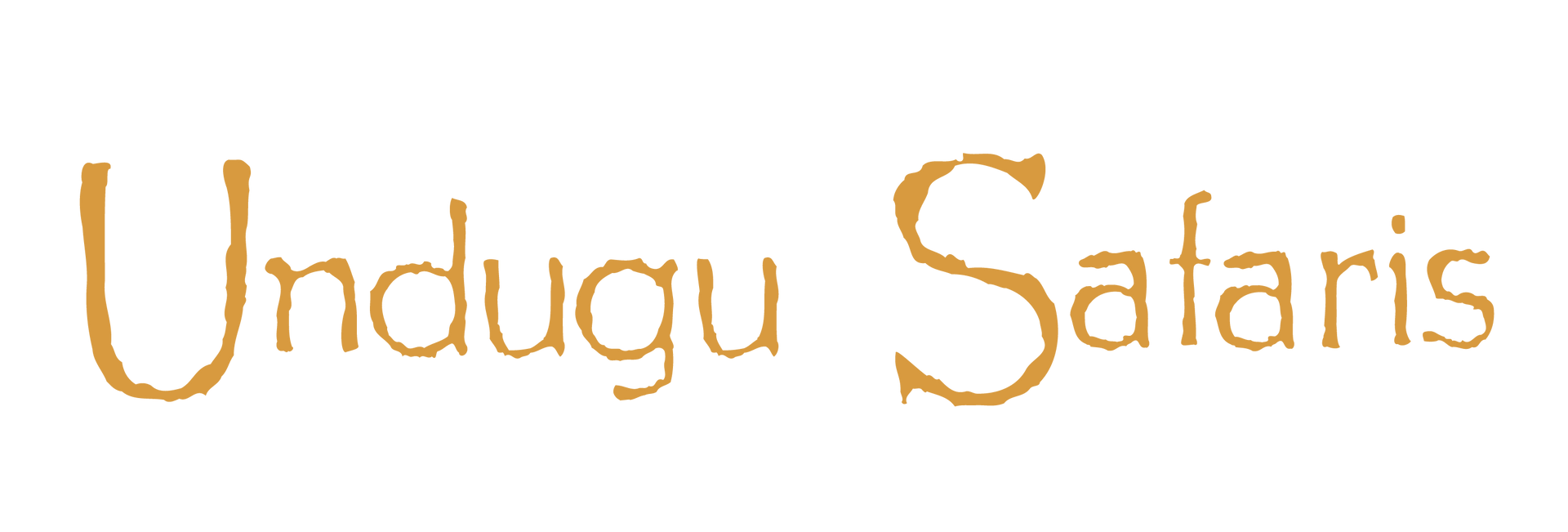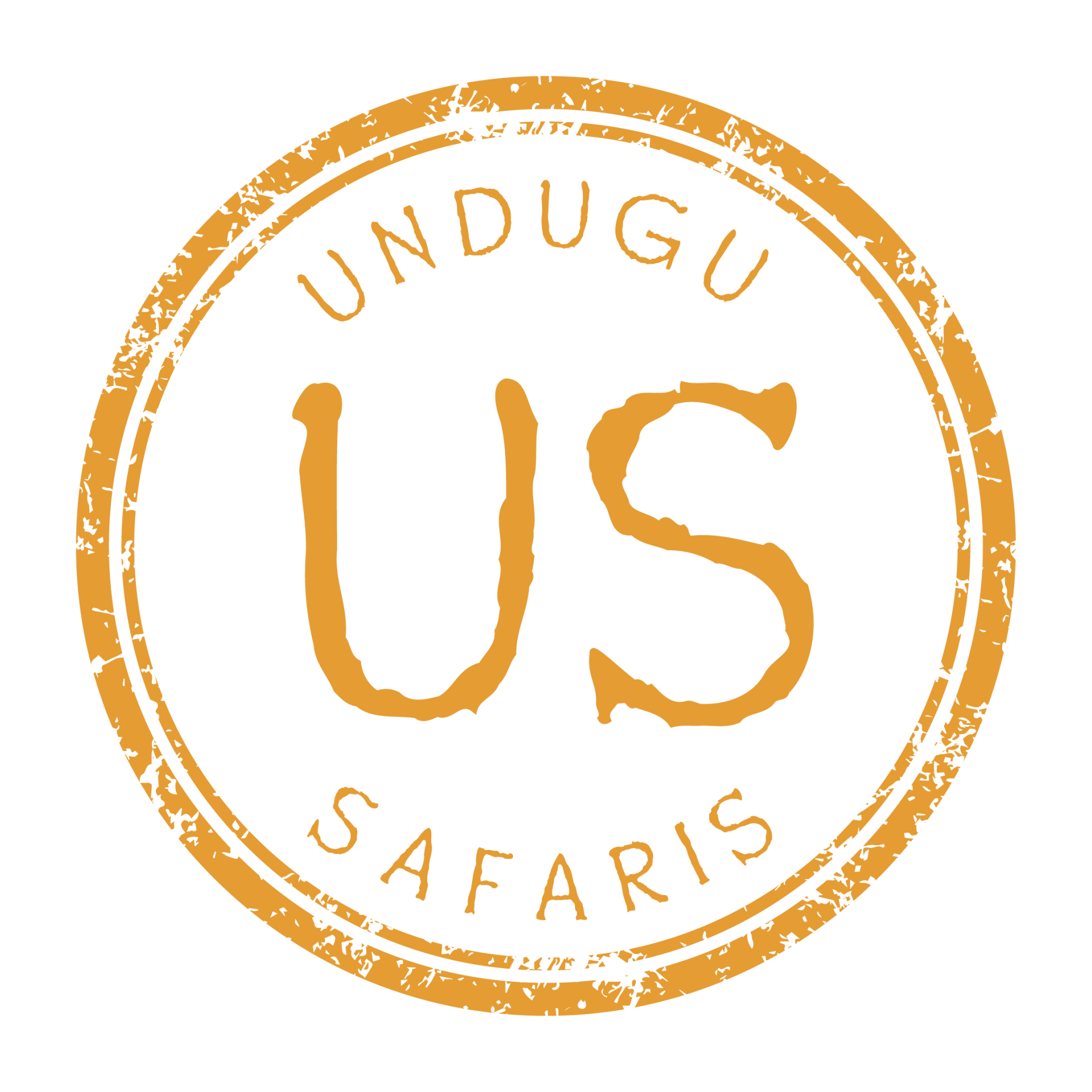Terms + Conditions
Booking Policy + Process:
A 20% deposit is required at the time of booking to secure your safari reservation. The final payment is due 45 to 60 days prior to your scheduled safari date.
- Choose Safari: Select a safari package or create a tailor-made safari with Undugu Safaris.
- Verify Inquiry: An email confirming your inquiry will be sent to you.
- Check Availability: Undugu Safaris checks lodging availability for your selected dates and confirms.
- Revise Itinerary: If needed, the itinerary and pricing will be updated.
- Receive Invoice: You will receive an invoice, itinerary, packing list, and pre-trip survey.
- Deposit Payment: Pay a 20% deposit via an online payment link or bank transfer.
- Reserve Services: Undugu Safaris uses the deposit to reserve booked services in Tanzania.
- Booking Confirmation: You receive a confirmation of your booking, along with trip logistics and emergency contact info.
- Final Payment: Final payment is due 45 - 60 days before your safari.
- Final Information: Receive final crew lists and updates a few days before your trip.
Arrival Information:
Upon your arrival at Kilimanjaro International Airport (JRO) or Arusha Domestic Airport (ARK), your driver will be waiting for you with an Undugu Safaris sign displaying your name, group leader’s name, or your agent’s name. The driver will meet you at the arrival area for a seamless transition to your destination.
If you encounter any difficulties locating your driver, please don’t hesitate to contact our local representative at
+255.752.146.992.
Travel Requirements for Tanzania:
1. Passport and Visa:
- A valid passport and entry visa are required to enter Tanzania.
- The visa fee ranges from USD 50 to 100 per person, depending on your nationality.
- We highly recommend applying for an e-visa in advance to minimize delays at the airport. Please refer to our contact information when completing the e-visa application.
2. Lost Luggage:
- In the event your luggage does not arrive with you, we will assist you with the claim process.
- Note: Only luggage lost on KLM flights into Kilimanjaro Airport will be delivered to you during your safari at no extra charge. There will be an additional charge for baggage lost on other airlines.
- For a smooth experience, we suggest packing electronics, medications, and essential items like contact lenses in your carry-on. A change of clothes and toiletries in your carry-on will help if your checked luggage is delayed for a few days.
Undugu Safaris Contact Information:
Office Phone Number: +255.752.146.992
Email: info@undugusafaris.com
Address: Mto Wa Mbu, Arusha Region
Registration Number: 154-722-548
Website: www.undugusafaris.com
*Please note the office number above. You may wish to give our contact information to your loved ones back home before travel.
Emergencies / Insurance:
Undugu Safaris does not provide travel insurance. We highly recommend purchasing comprehensive travel insurance before your trip. For a comparative review of insurance policies, you can visit QuoteWright or TravelGuard, though you are welcome to choose any provider that best suits your needs.
Health and Medical Concerns
Please inform your Undugu Safaris guide immediately of any illness or injury, so we can take the necessary steps to prevent further complications.
Emergency Medical Assistance
In the event of a medical emergency during your safari, we offer a membership with Flying Doctors of Tanzania. This membership covers emergency medical evacuation to the nearest medical facility capable of providing treatment. If an emergency arises, Flying Doctors will transport you, along with one escort (family member or friend), to the hospital. Please note that Flying Doctors will not cover medical treatment once you are hospitalized. Additionally, aircraft evacuations are subject to pilot discretion and safe flying conditions.
For a smooth evacuation process, please ensure you have the following documentation on your person:
• Your Flying Doctors membership number (provided by Undugu Safaris)
• Passport and Visa
• Proof of medical coverage or sufficient funds for treatment
• Vaccination certificates, if requested
Vaccination Information
For recommended vaccinations, please consult the following website:
CDC Tanzania Travel Information
Money / Foreign Exchange:
While many activities in Tanzania are “all-inclusive,” it is still advisable to bring extra money for souvenirs, gratuities, drinks, laundry, and other incidental expenses.
Currency:
The official currency of Tanzania is the Tanzanian Shilling (TSH). The exchange rate typically hovers around TSH 2400 to USD 1, but this rate fluctuates.
ATMs and Credit Cards:
ATMs are widely available in major cities and villages across Tanzania. It is recommended to bring a Visa or MasterCard with a 4-digit PIN, as MasterCard is accepted at some ATMs. Please note that ATMs dispense Tanzanian Shillings only. Be sure to notify your credit card company before traveling to Tanzania.
Although credit cards are accepted at some stores and hotels, a surcharge of 3-10% typically applies.
Traveler’s Checks:
Traveler’s checks are difficult to use and offer a poor exchange rate.
USD and Other Payments:
Major stores and hotels accept payments in USD cash or by card. For gratuities, it is recommended to use USD cash or Tanzanian Shillings.
USD Bills:
Ensure that you bring USD bills issued in 2009 or later, as older bills are generally not accepted.
Security of Valuables:
Keep your valuables (money, passport, cameras) on your person at all times. Avoid storing money or traveler’s checks in your packed luggage at lodges, as the safety of unattended items cannot be guaranteed due to the presence of multiple companies and personnel at each location. It’s best to store valuables at the front desk or in your room safe. Please note that we are not responsible for any lost money or valuables.
International / Domestic Flights:
Dar es Salaam International Airport is situated 15 km southwest of Dar es Salaam, approximately a 25-minute drive by car. Facilities include duty-free shops, car rental services, a post office, banking services, ATMs, a bureau de change, as well as a bar and restaurant.
Kilimanjaro International Airport is located 40 km from Arusha, about a 1-hour drive by car. The airport offers curio shops, a post office, banking services, ATMs, a bureau de change, a restaurant, and a bar.
Zanzibar International Airport is just 7 km from Stone Town, approximately a 15-minute drive by car. Its facilities include a cafeteria, banking services, ATMs, and a bureau de change.
Arusha Domestic Airport is located on the outskirts of Arusha. Its facilities include a curio shop and a snack bar.
Weather:
Tanzania experiences a predominantly tropical climate. The hottest months span from October to February, while the long rainy season lasts from mid-March to late May. The short rains typically occur between November and January. The coolest period is from June to August, with cooler nights and early mornings. In high-altitude regions, such as Mount Kilimanjaro, temperatures can dip well below freezing. Coastal areas are characterized by heat and humidity, with average daytime temperatures around 30°C (86°F), though sea breezes often provide a refreshing relief.
Tipping:
In Tanzania’s tourism industry, tipping generally follows the North American system. Tourists are expected to tip safari staff as well as staff at most hotels and restaurants. The following is a guide to tipping during your safari, based on recommendations from guidebooks and our own experience in Tanzania.
It’s important to note that all staff members are paid, and tips are not meant to replace wages. Tipping is an expression of appreciation for exceptional service. If you have an enjoyable experience, consider giving a generous tip. If not, feel free to adjust your tip accordingly.
Safari Crew:
We suggest tipping $35 to $50 per day per crew member (guide, driver, chef) for a typical safari. For high-end safaris or if you feel you received exceptional service, tipping above this amount is encouraged. This amount is per crew member, not per traveler.
For example, if a group of 5 travelers chooses to tip $50 per day for the driver, the total tip for the guide at the end of a 7-day safari would be $350 ($50 x 7 days = $350). Each traveler would contribute $70 to the total tip ($350 ÷ 5 travelers = $70 each). It is recommended to give the tip at the end of the safari.
Hotels and Restaurants:
Tipping is customary at high-end hotels and safari lodges, and expected at most moderately priced lodges. However, tips are not always expected at establishments frequented by locals. Most tourist lodges and hotels provide tip boxes at the reception, where you can place a tip for the staff. Alternatively, you can tip staff members individually. Tips can be given in local currency, USD, Euros, or British Sterling.
Other Activities:
For activities such as guided walks, a tip of $10 to $20 per person is generally appropriate, depending on the nature of the activity.
Lodging:
Accommodations (hotel, lodge, or campsite) in the itinerary are subject to change due to unforeseen circumstances or factors beyond our control. While every effort will be made to operate tours as planned, modifications may occur after the final itinerary has been issued. We reserve the right to adjust tour prices to account for increased costs, tariffs, taxes, or fluctuations in foreign exchange rates.

